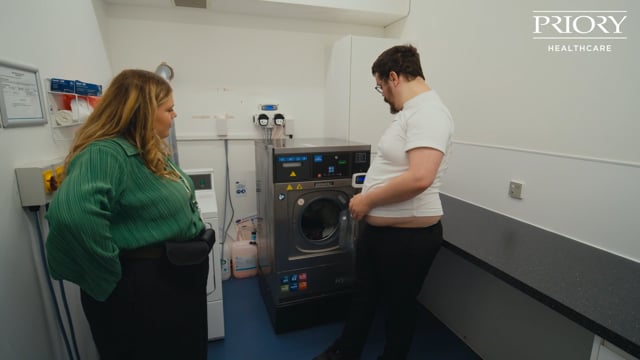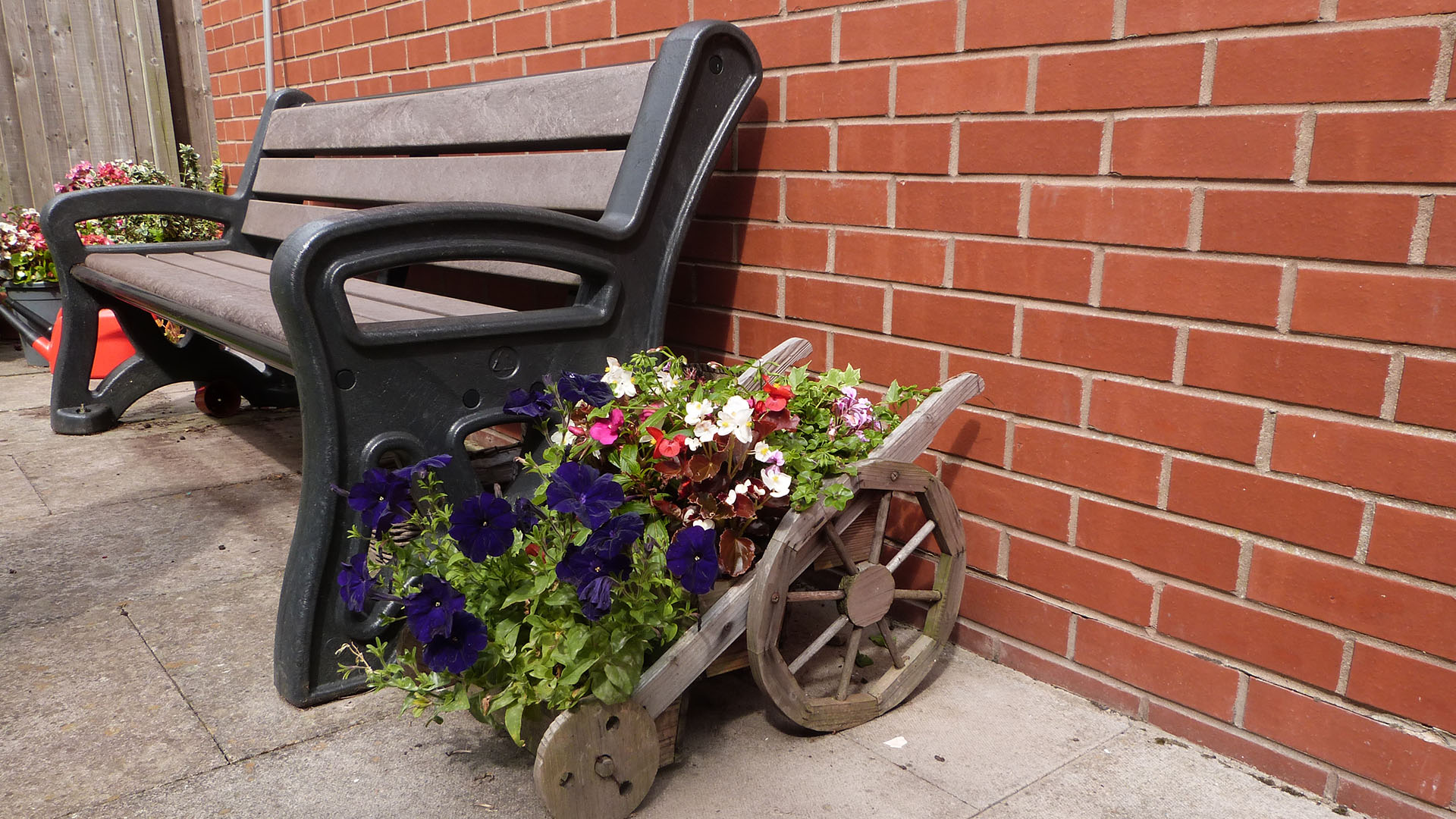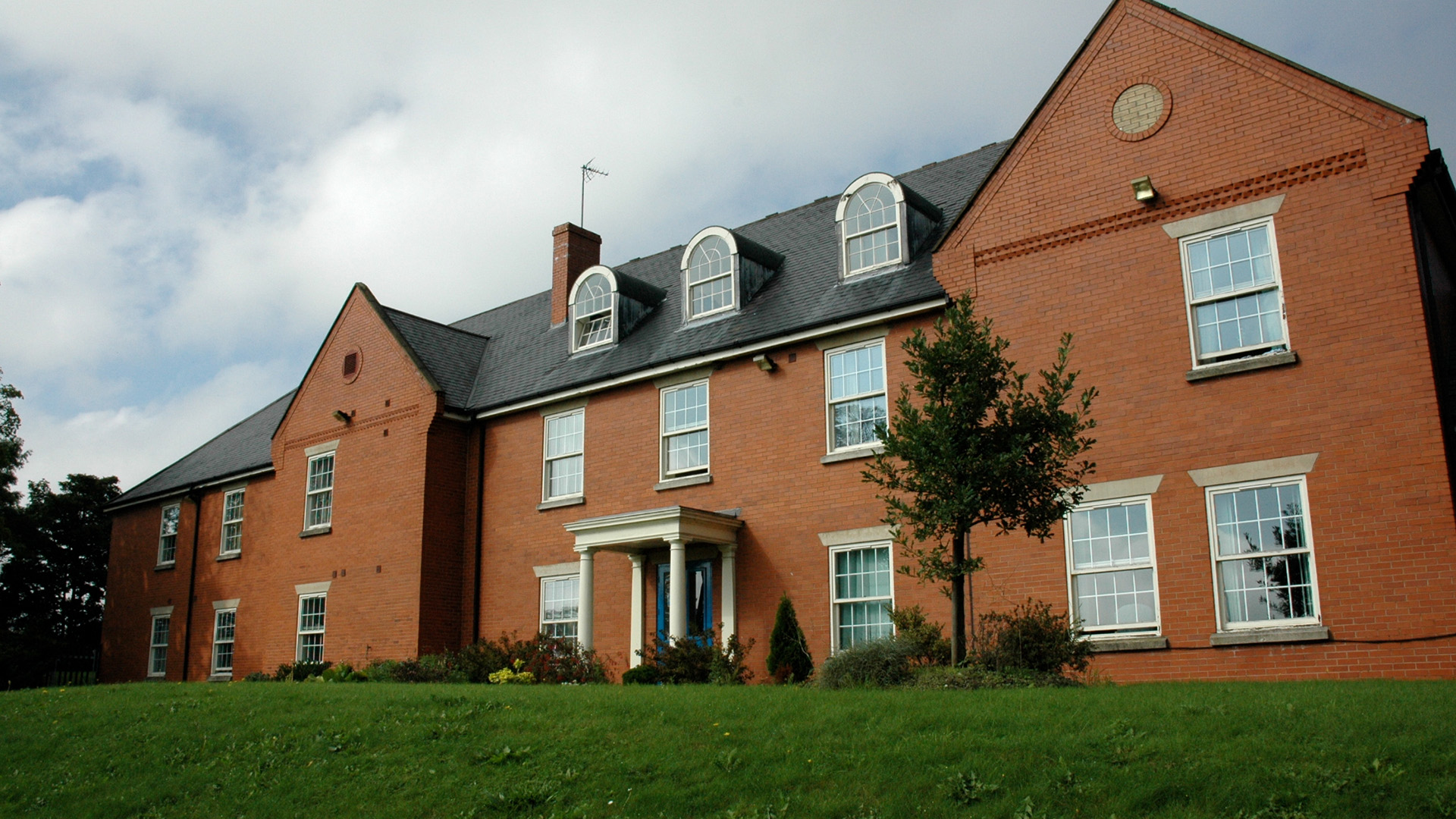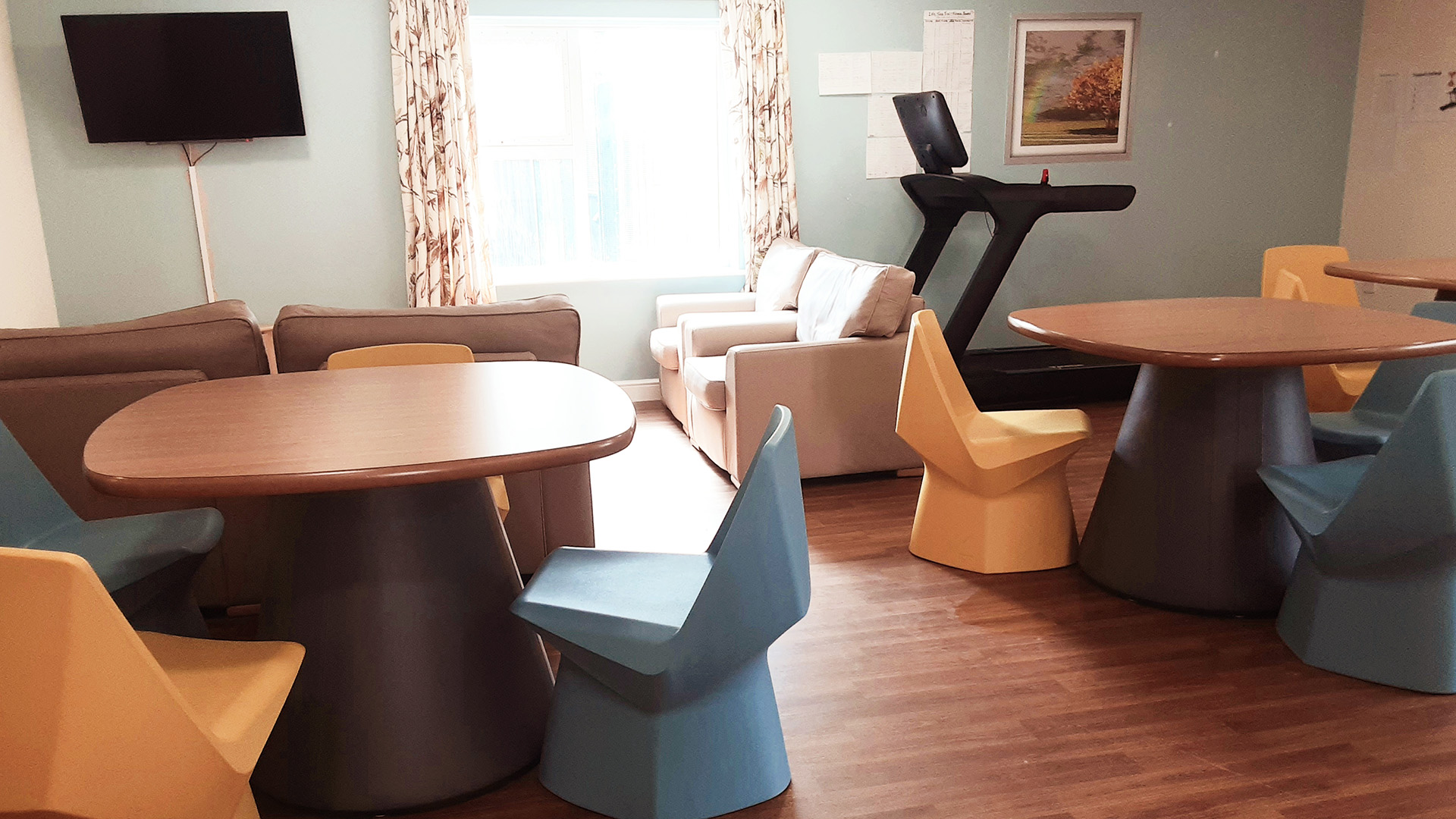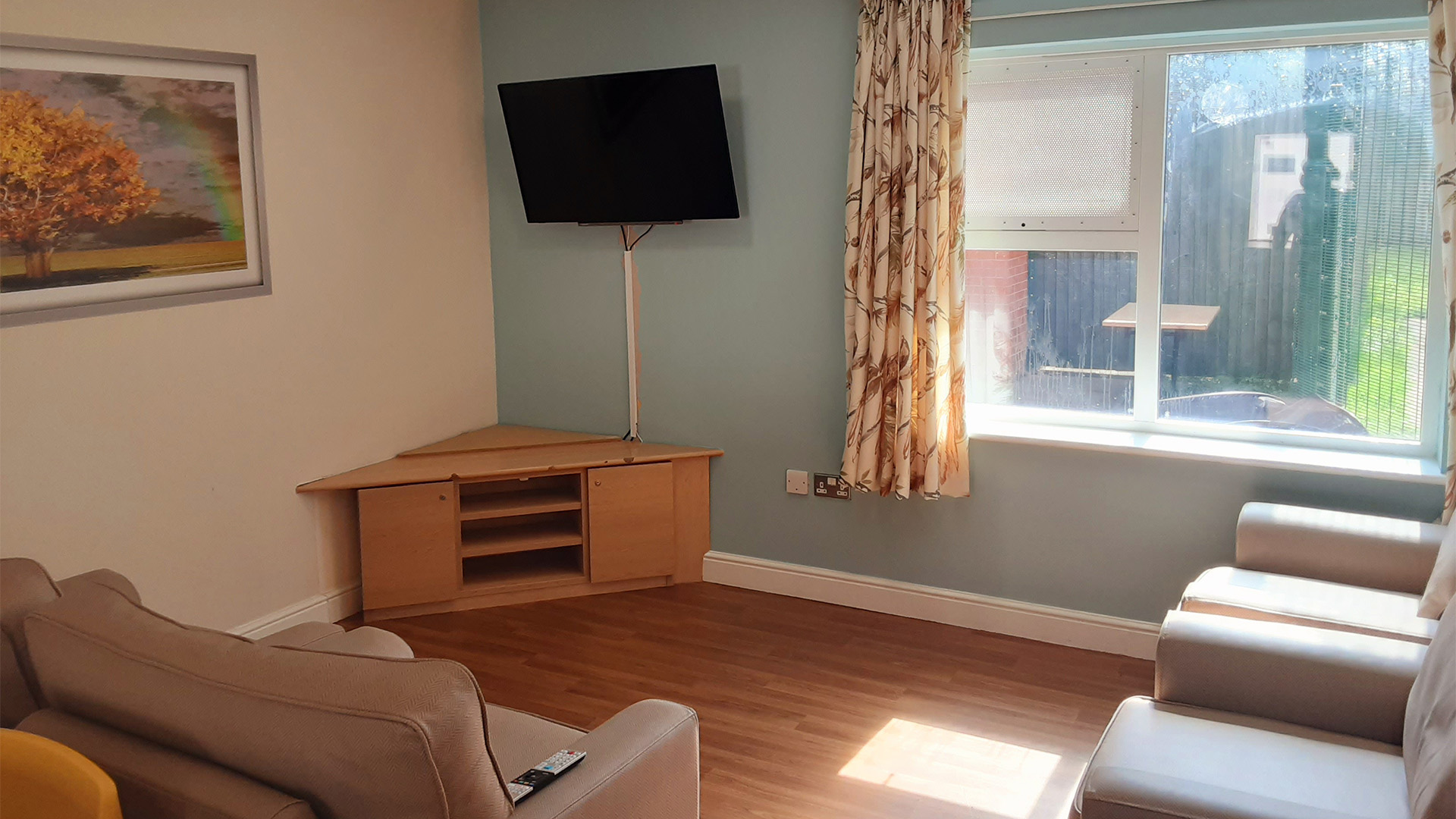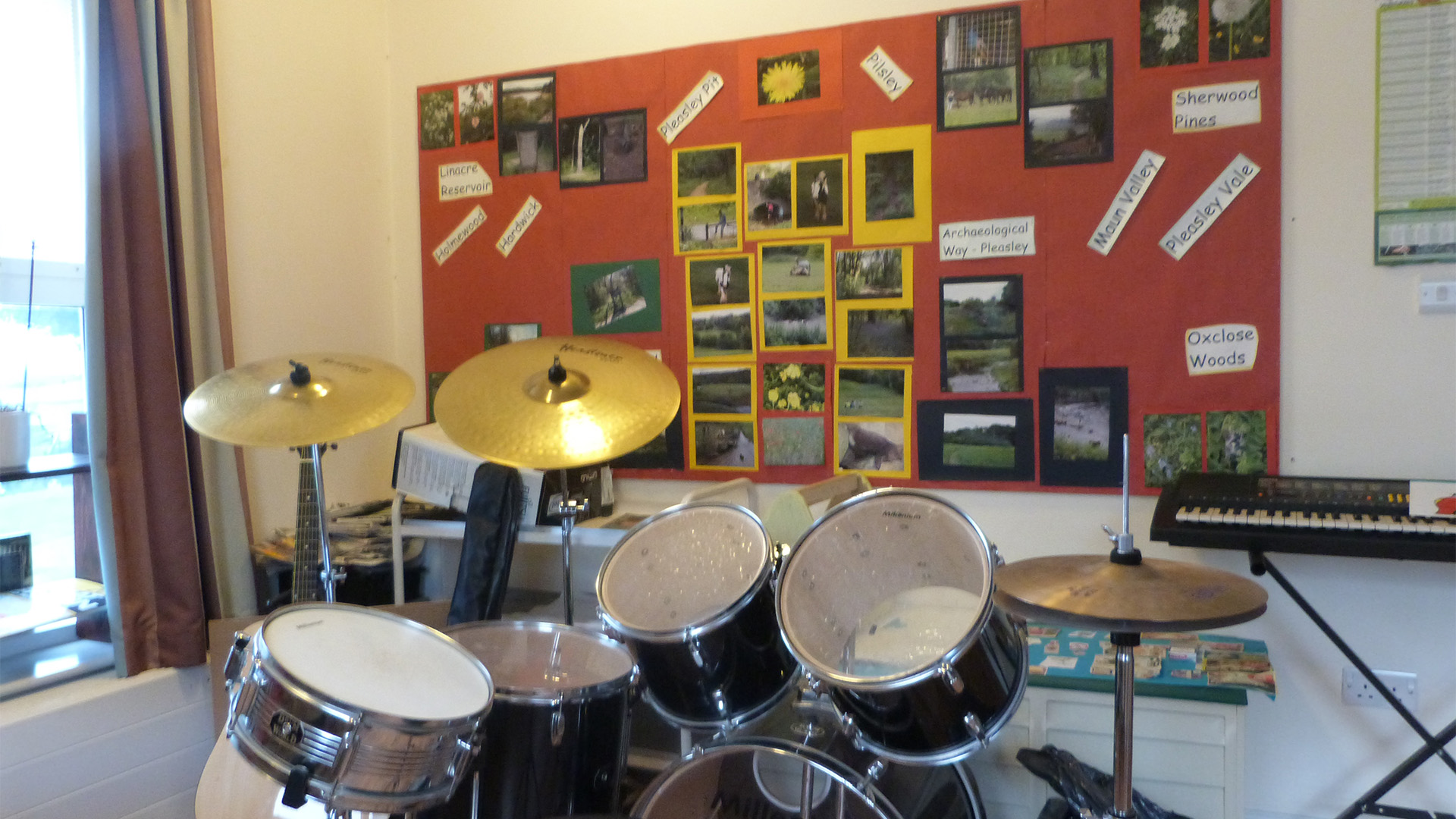About this location
Priory Hospital Hazelwood House, in Heath, Derbyshire, is a low secure unit for 12 males with mental health needs. We also support those who have a learning disability, complex care needs and/or are on the autism spectrum. This hospital provides WAIS and ADOS assessments for patients who may be waiting for an NHS diagnosis.
Services at a glance
Contact us
Click here to enable this content
Services
Our secure services offer comprehensive support to people with complex mental health needs. We model our service provision on the NHS secure service specification for medium and low secure services, ensuring our patients are given the highest quality of care to enable quick and smooth transitions into local services, wherever possible. We are committed to delivering clinically effective, evidence-based treatment programmes for individuals who require secure care, providing both psychological and physical security.
Ward break down
- 12-bedded ward for adult males
Conditions treated
We are able to support people with a learning disability. We can also support people with the following challenges alongside their primary diagnosis:
- Autism
- Complex mental health needs
Treatment approaches
At Priory Hospital Hazelwood House, we offer an individualised, person-centred approach to all of our patients.
We are dedicated to providing holistic and person-centred care to everyone we support, helping them to become more independent. Our safe and secure environments, caring staff team and culture of excellence, mean we’re well-placed to support people in their recovery.
We are specially trained in the reinforce appropriate implode disruptive (RAID) approach and our team focus on positive behaviour as a way of supporting people who may demonstrate behaviours that challenge. Everyone who stays with us has a positive behaviour support plan (PBS) and this is routinely reviewed.
Our assessment and treatment options are overseen by a full and diverse multidisciplinary team (MDT).
We offer:
- Individual psychological therapy
- Recovery and mental health awareness
- Stop and think! - a social problem solving therapy
- Managing anger programme (MAP)
- Drug and alcohol programme
- Relationship programme (social skills, collaboration with therapies)
- Adapted sex offender treatment programme
- Coping skills programme
- Arson treatment programme
- Relapse prevention and discharge planning
- ‘I can feel good’ group (adapted dialectical behaviour therapy (DBT) group)
- Mindfulness
- Practical sessions
- Ready steady go (discharge group)
People within our service tend to stay with us on a transitional and long-term basis.
We are also accredited by the Quality Network for Inpatient Learning Disability (QNLD).
Our team
- Forensic psychologist and assistant
- Occupational therapist (OT)
- Occupational therapy assistants
- Consultant psychiatrist
- Director of clinical services
- Nursing team
- Social worker
- Sessional speech and language therapist (SaLT)
- Dietitian
- RAID
- PBS
Therapeutic and community-based activities
We offer a range of therapeutic and community-based activities as part of a full treatment programme. We want to support people to become more confident and independent, preparing them to move through their treatment pathway towards community living.
Our therapeutic and community-based activities include:
- Community-based volunteer work
- Real work opportunities
- Breakfast club – where people can develop cooking, food preparation and socialisation skills
- Group cooking skills
- Education – literacy and numeracy
- Physical fitness
- 1:1 cooking
- Arts and crafts
- Hobbies
- IT skills
- Skills for living group
- Recovery college
- Pets as therapy
Our facilities and environment
Our bedrooms
Exclusion profile
- People under the age of 18
Pathways
Priory’s network of high quality facilities enables us to offer joined-up care pathways with our dedicated residential services. We offer programmes which integrate healthcare treatment and therapy, which are tailored according to individual needs, in an appropriate setting. Our strength is that we can provide a seamless transition for the individual as they progress between higher and lower dependency services.
Everyone who stays with us is considered for our Priory Supported Living or Priory Adult Care services. Our aim is to work with people to maximise their opportunity to live as independently as possible in the community. We achieve this through a robust treatment programme that aims to build and consolidate core skills, promote relapse prevention strategies, and promote safe, positive risk-taking.
BTPs
Our bespoke therapeutic package is set within a self-contained, 1 bedroom apartment, within our secure ward, for people with a learning disability and those on the autistic spectrum, giving individuals who may find the ward too overwhelming, their own bedroom, kitchenette, living space and garden, to ensure a personalised approach to their care. Individuals may present with complex and challenging needs, including aggression and sensory issues, and may benefit from the time and space to learn how to self-regulate their own emotions. The core aim of our BTPs is to offer an environment with the least restrictive practices, where patients who are struggling in a group environment, can develop their independence skills, enabling them to transition to community living, when possible.
A message from our site leader

Here at Hazelwood House, we are committed to working through identified plans in order to produce the best outcomes for our patients. We have had incredible patient success stories and we will continue to strive for excellent results, through an evolving service, to meet our patients and the needs of NHS
Hazelwood House site leader
Information for family and friends
How do home visits work?
We help to arrange home visits on a case-by-case basis.
What is your visitation policy?
We are flexible with visiting times, but please contact the hospital ahead of any visit.
Will I be involved and kept up to date with my loved one’s care and wellbeing?
Yes, we make every effort to keep the loved ones of our residents involved in their care, when we have consent to do so.
Will my loved one be able to have a phone or call me?
People staying with us may be allowed to use a mobile phone or access the phones on the ward, following any risk assessments.
What type of things are families expected to provide, and what is provided by the home?
We provide all furnishings, bedding and food on-site. Patients just need to bring personal clothes and belongings.
What are the bedrooms like?
All of our bedrooms are furnished, and residents are supported to personalise them to suit their needs and wishes. They are all single person, en-suite rooms.
Are external doors kept locked?
All of our external doors are locked. However, every person staying with us will be individually assessed for any risks to see what security is needed.
What do service users eat and how do meal times work?
We have set mealtimes and all dietary requirements can be met. Snacks are also available.
How does laundry work?
Laundry is managed by our staff, but people are encouraged to get involved.
Is there anything they can’t bring or have?
We have a restricted and prohibited items list, which is reviewed and updated regularly. This can be seen on request.
Are pets allowed?
Therapy pets make regular visits to the site. Visitors’ pets are also welcome, subject to prior agreement from the hospital team.
How do activities work?
Everyone staying with us has an individualised activity programme, which is structured around individual care plans.
Do service users and families have an input into the service user’s care plans?
Yes, families and friends are encouraged to be involved, from admission to discharge.
What are the car parking facilities?
There is free car parking on-site.
What is the smoking policy? Can service users buy cigarettes?
Hazelwood House is a non-smoking site. Vaping is allowed in rooms or designated outside areas.
How is treatment accessed and funded?
We don’t take referrals directly from individuals and families. Instead, the first step will be for you to reach out to the person’s GP so that they can be referred and funded through the correct NHS channel. Depending on the type of support needed, this could include local authority funding, NHS funding, joint funding between the local authority and NHS, or direct payments. Please note, referrals for NHS or local authority funded services must come from a referring organisation.
How to make a referral
Our customer service centre provides 24/7 support for NHS mental health enquiries and referrals. Our customer referral co-ordinators can support you from your first call right through to the enquiry conclusion, providing updates throughout the process. We offer 24/7 crisis referrals, fast access to bed availability and placements, and a single access point for end-to-end enquiry management.















